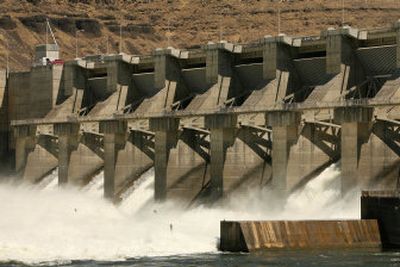Environment rulings chastise Bush

SEATTLE – Using language that suggests they are fed up with the Bush administration, federal judges across the West have issued a flurry of rulings in recent weeks, chastising the government for repeated and sometimes willful failure to enforce laws protecting fish, forests, wildlife and clean air.
In decisions from Oregon, California, Montana and Wyoming, judges have criticized the judgment, expertise and, in some cases, integrity of the major federal agencies that manage natural resources on public lands.
The rulings come at a time when an emerging bipartisan coalition of western politicians, hunters, anglers and homeowners has joined conservation groups in objecting to the rapid pace and environmental consequences of Bush policies for energy extraction on federal land.
Specialists in environmental law say there has been a noticeable increase in the number of recent court rulings in which federal judges in the West have ruled against the administration using blunt language that shows impatience and annoyance.
“You are seeing frustration in the federal judiciary,” said Dan Rohlf, a law professor at Lewis & Clark Law School, in Portland. The law school has the nation’s oldest environmental law program. “When judges express that frustration on paper, which is not all that often, they are often reflecting what they see a systematic effort to get around the law.”
The most scathing and exasperated of the recent court orders came late last month out of Portland, where U.S. District Court Judge James Redden has presided for six years over a stalled federal effort to prevent endangered salmon from going extinct in the Columbia and Snake rivers.
Federal agencies “have repeatedly and collectively failed to demonstrate a willingness to do what is necessary” under the Endangered Species Act to save fish that are at risk of extinction, wrote Redden, who was appointed in 1980 by President Carter.
The agencies that he said are refusing to enforce the law include the National Oceanic and Atmospheric Administration, which leads the salmon recovery program, as well as the Army Corps of Engineers, the Bureau of Reclamation and the Bonneville Power Administration, which markets power from federal dams on the rivers.
Bob Lohn, regional head of NOAA Fisheries, declined to comment on Redden’s criticism of his agency’s work. Through a spokesman, Lohn said that any comment would be inappropriate because of legal disputes pending before Redden and other federal courts.
Costing billions of dollars, the effort to rescue salmon amid 14 huge hydroelectric dams is the most costly and complex enforcement action in the history of the Endangered Species Act.
In his court last year, Redden said the administration’s plans to protect fish had been proposed “more in cynicism than in sincerity.” He noted in his order last month that federal agencies now “seem to be more concerned with ensuring” that Idaho irrigators get water for their crops than with mitigating the damage that dams and water diversions do to endangered fish.
Having tossed out two earlier federal plans for running the river system (one of which was proposed late in the Clinton era), Redden warned that he “will not allow another invalid” plan to remain in place while urgent action is needed to protect salmon. The warning suggests that the judge might halt the operation of federal dams on the Snake River – dams that President Bush has described as vital to the economy of the Northwest.
In Montana last week, U.S. District Court Judge Donald Molloy wrote that the Fish and Wildlife Service had lost touch with science when it declined to investigate whether the North American wolverine is at risk of extinction.
Molloy, appointed by Clinton in 1996, found “a dramatic loss” in the range of wolverines, a decrease in their population and growing threats to the weasel-like scavenger from genetic isolation and human encroachment.
The Fish and Wildlife Service, he ruled, had ignored “substantial scientific information that would lead a reasonable person to conclude” that listing wolverines as endangered or threatened may be warranted. He ordered the agency to look into the matter for a year.